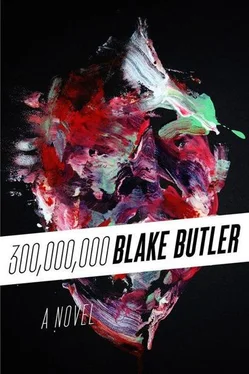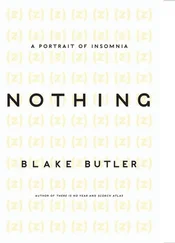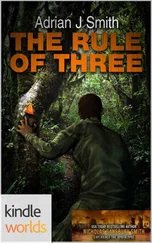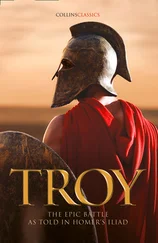FLOOD: The voice continued even when it wasn’t speaking, I could not stop it. It was becoming hard to hear my own, or to feel where in his body I was at all besides as interruption: This whole world of the living was so shrill. How could you be sure any moment you’d believed you’d been alive and living you weren’t looking head-on into a mirror? How do you know you weren’t being recorded, or that you yourself weren’t a recording? There’s no one left but me to let you know. I who had been always by your side, always just beneath you and behind you and within you.
The body of the homemaker was blue, beaten to mush. In each room of the house she had a body she hoped would continue growing even during days where she was concerned with her image and so out loud wished to lose the weight. Each day depended on their staying alive. The son who would go through the day inside a vehicle among other vehicles piloted on whim and gasoline. The daughter who would walk among men and women who all had eyes and access to knives and a will to act in any minute. The father had a brain with thoughts that flashed like little cities winking on and off in darkness, perhaps the idea of stroking something or eating something or beating something; the world depended in some way on every ion of him not going haywire any day, even in the smallest acts, i.e. gently stroking his left or right hand just so much in one direction either way while driving on a highway by or not by direct intention, the resulting clash of machines taking someone we knew and loved and changing our lives like bread into an oven to be eaten by someone we knew nothing of or maybe thought we did. The color of the homemaker’s hair could change at will by her hand or on its own in time because god is all things, she believed. God’s power has no bounds, she’d say inside herself and at certain times aloud, though perhaps not in the presence of the bodies that had bred in her the love that made her want. If god wants to kill me today there is a reason, she would go on. If god wants to have someone write a book in which I am being inadequately described as a fraction of a person existing perhaps in countless bodies, who has already been killed by someone else, if for no other reason than boredom, or his own fury or sadness, so be it; this is god’s will also. What if I don’t believe in god, she’d ask herself some nights under quilts and covers wrapped in the white wire blankets in the room of the house surrounded by the world lit only by sight and sound and touch, the senses, which could be so easily removed. What if I think I believe in him but I don’t believe in him really and he knows I don’t and can smell it even though I can’t because he is a greater force and can smell the real thing, why am I thinking this even, I wish I did not have to think, thinking kills the light out of me, it kills my light out, and any thought will only be profane, and profane isn’t even a word or concept that I value but I still believe that we as humans are in trouble and yet I go on and I believe and I act and I make and I cook and I wash and I want and I learn and I make and I continue forth in the effervescent mash of the human spirit surrounding any intention even the blackest even the illest even those who would say the darkness is all around because really in darkness the greatest gift might be born and in embracing the blackest of our sides we are alive even in death we would be alive, I think, and regardless or not if I believe and regardless or not if my belief is being considered or judged or reflected or compressed in the moment of some something above the minute I will imagine right now that time goes on forever and in going on forever does not exist and so to embrace nothing is a kiss of god and to die is a kiss of god and to not die yet is a kiss of god and to not realize I have died is a kiss of god and to be even silent underground or bloody open underneath the veil of sky is the kiss of god, even those who do not believe in god will be kissed by him the way they walk through air and go to dinner and hear songs and take on vision even blind or deaf even in America even today with the knife so at our throats as it has always been by our hands, the hand of god in any body, the hand of god again, the sight.
FLOOD: With each word I could less and less tell my body from any other cadaver; in each, the voice again there melded to my blood: Each time a room is photographed, it doubles. The same with people, and their mortality. In our total human death, all hours compile unframed with every possibility of what we felt we knew or wanted. As soon as this could have been true, it always was.
The body of the mime cannot be found. It had been consumed all parts and portions from the brush of flesh over his face to the thin rinds between his smallest two toes and his gonads. His flesh was found to taste like grapefruit peeled and doused with lighter fluid and rolled into a market aisle gathering dirt and silence as shoppers might have passed placing canned peas and syrup in their carts with their eyes anywhere but down. The rough lining around the muscle was melted under flamethrower and used to tease the dogs who would run from the stench of it into a deep woods; then the men, who’d never meant to feed the dogs with this gray meat regardless, could chew and choke themselves and taste the silence where words pocked into the mashy pockets of the brain and down the fingers of a man suffused with light from machine screen and buzzing bells reminding human contact and the words that time had altered in their unpresuming meaning beforehand as he placed his fingers on the buttons to again be misread by whomever beyond his own misreading as should all things be until they no longer are. The blood would be drunk by mouths put to the pumping spigot of the flesh or it would be washed into the earth. The bones from there fashioned into weapons that could then be used to strike further bodies of their blood and cells, begetting more meat, begetting weapons in the act of debegetting else; what vocabulary swatted cold inside his skull of teeth and gums, among blood bubble and scraping brain putty; what has never been a word, and would never be a word again; what ash. The skull was ground to powder and snorted in pursuit of some fried high, which truly would find its function in the disassemblers’ bloodstreams centered at the moon’s spin like chambers in a gun around the bullet of America giving itself again unto itself again with gifts for our last birthday one last time while the hour struck the name of the year inside us unrepeating and the arms were fine and glasses raised and promises repeated and mouth to mouth and singing zero.
FLOOD: My sight was voice and voice was sight; my mind was nothing beyond what came across it: These corpses are the filaments of our cells. Their destroyed memories are our blood. They speak forever now in colored shafts inside the head wound of the ground where grass must grow. For each body, think of all that had touched them, come forth from them, depended on them. Think of all that had been rendered in their meat. Now think of a stairwell with each step flattened out so wide it covers everything and all directions. Now climb in silence.
Moving among the bodies, holding their era, made me come awake inside my own shape over and over, full of pleasure to find them waiting. Each inch filled me that much brighter than the last. I was not embarrassed about what any of us had done, nor ashamed, nor sad, nor hopeless. It felt like waking up in different worlds second to second.
In the eyes of each of the gone people I could read their days — who they were and what they had been and done and did and would have had they not been killed and ended. Their faces showed exactly who they were, plain on the skin they wore as it degraded. In single fingernails I saw the color I needed to believe that anyone was somewhere and so could continue walking, as otherwise their beauty in death would lay me down. I wanted to lie down in every instant. I wanted to sink into the earth, the skin and meat of it. My clothes had become so see-through from my trembling and the false sweat that I was naked. The breeze of life blew through my hair. The light was taking pictures. It ate the pictures. It shat the pictures out and glowed. From the glowing new houses rose up behind me; I could hear them, but I was not allowed to look. My head would not turn, nor my torso.
Читать дальше












